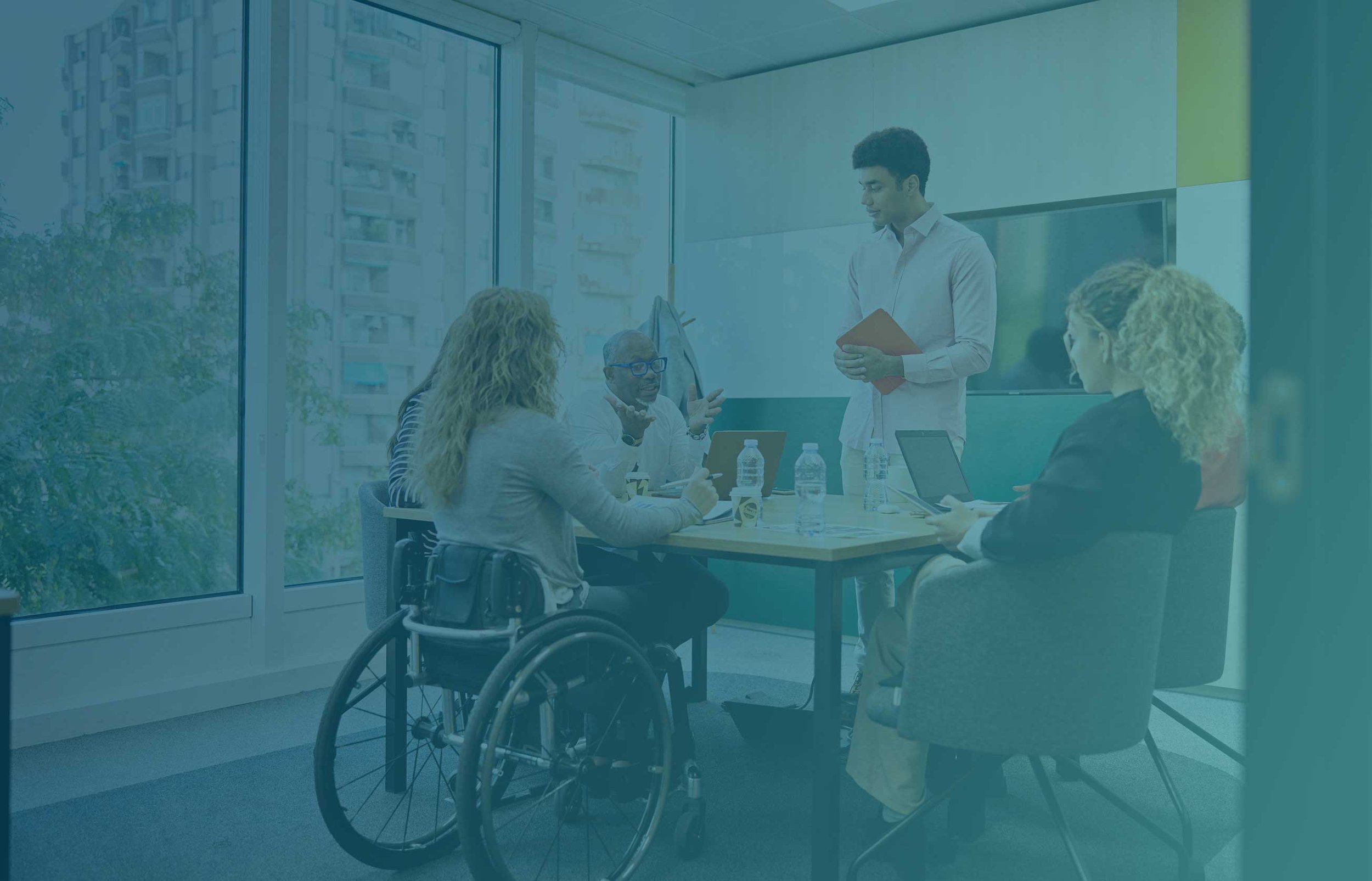
The Elevate Journal
- Leadership
- Nonprofit Support
- Accessibility
- Community Engagement
- Equity
- Data Collection
- Learning
- Internal Culture
- Collective Impact
- Storytelling
- Compassion
- Operations
- Project Spotlight
- Systems Change
- Facilitation
- Impact
- Evaluation
- YPAR
- Fundraising
- Focus Groups
- Data
- Reflection
- Reporting
- Surveys
- Services
- Collaboration
- Strategy
- Resources
- Stakeholders

Elevatesgiving Potluck
The secret ingredient to a great team? A great meal! Our annual Elevate potluck is always a fantastic way for us to connect, swap stories, and, most importantly, share our favorite recipes with one another. This year's spread was absolutely amazing—it's incredible to see the creativity and care that go into the spread.

Project Spotlight: New Equitable Hiring Initiative in Delaware
The Delaware Equitable Hiring Initiative is designed to connect local businesses with historically overlooked talent in Wilmington, Delaware, ultimately uplifting communities with quality job opportunities. Funded by JPMorganChase (JPMC) and Capital One and headed up by the Responsible Business Initiative for Justice (RBIJ), the project hones in on three Delaware zipcodes to train businesses in equitable hiring practices and recruit untapped talent.
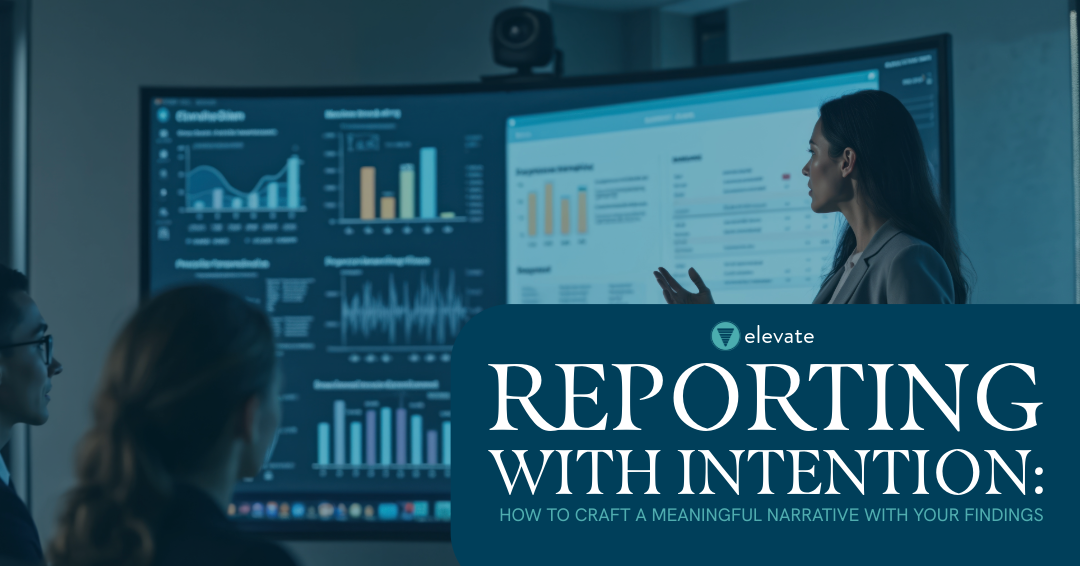
Reporting with Intention: How to craft a meaningful narrative with your findings
Crafting an intentional report isn’t just about presenting findings; it’s about shaping understanding and fueling the actions that move your mission forward. When we pair clear insights with purposeful storytelling and a deep awareness of our own positionality, we create reporting that is both useful and respectful of lived experiences.


Approaching Data like an Analyst: From Data to Findings
In our last journal entry, we looked at the most versatile options for data collection. Now let’s take a look at how we think about and practice data analysis at Elevate.
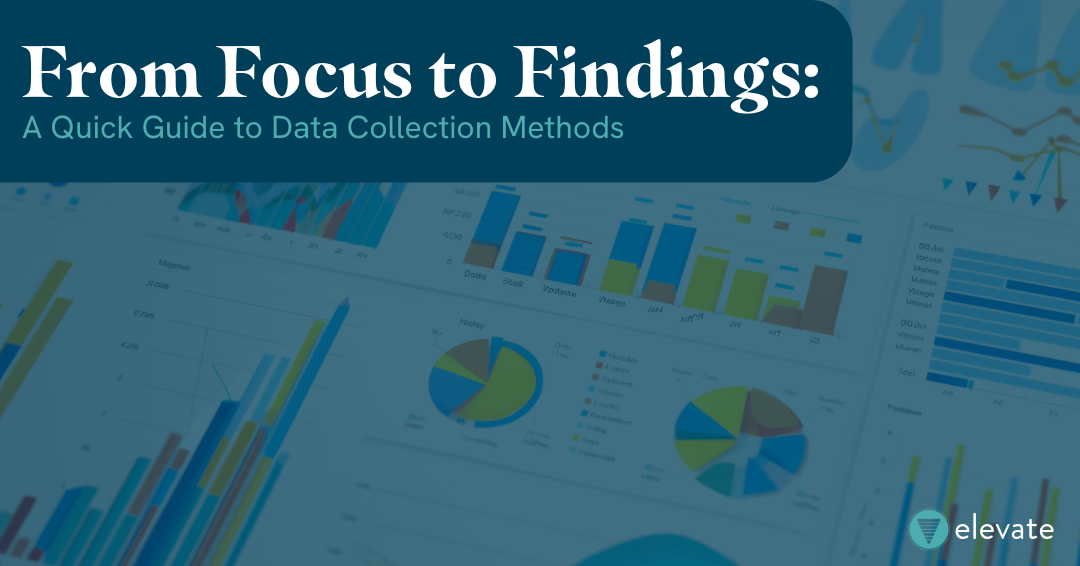
From Focus to Findings: A Quick Guide to Data Collection Methods
Think of methods as the tools in your evaluation toolbox. They’re “the how” of gathering information, and include the specific ways you’ll answer the big questions about your program, organization, or collaborative. Most people know about the two broad categories: quantitative (numbers) and qualitative (stories). But the real magic happens when you think carefully about which method fits your purpose — and when you combine approaches for a more complete picture.

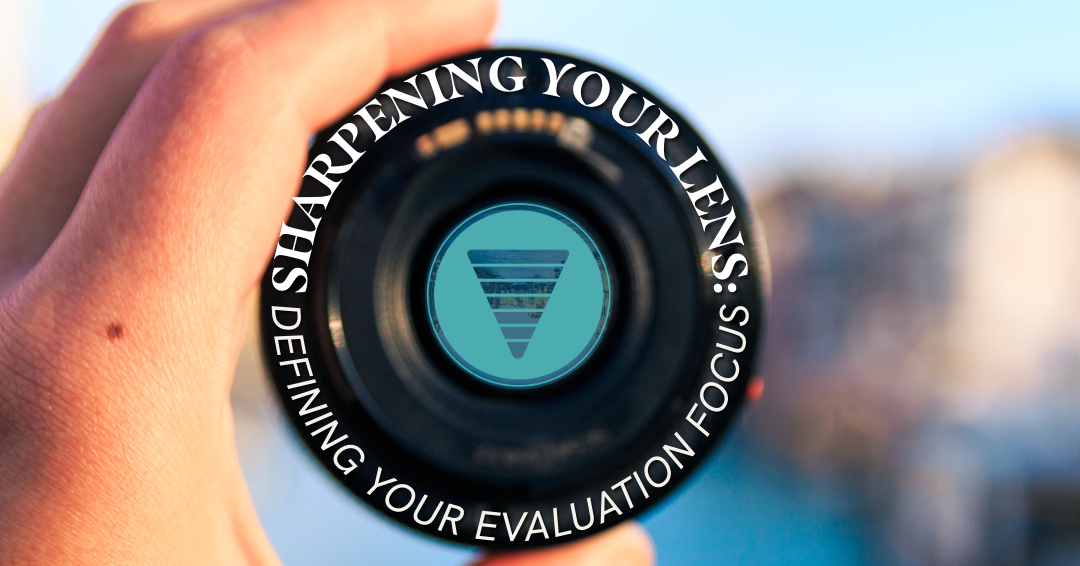
Sharpening Your Lens: Defining Your Evaluation Focus
At its core, defining your evaluation focus means pinpointing the specific questions your evaluation aims to answer. It's about narrowing down the vast landscape of your program's (or your organization’s) activities and outcomes to a manageable, meaningful scope. Instead of trying to evaluate everything, you're strategically identifying what aspects are most critical to examine given your resources, staff capacity, timeline, and the needs of your stakeholders.

2025: Our Year So Far
Despite swimming backwards, against the tide, in the toxic soup, we at Elevate are grateful for all the ways our partners, clients, and friends have shown up this year for themselves, others, and us. It’s a testament to the resiliency of nonprofit leaders that even though things have been extraordinarily challenging, you’ve still found ways to lead thoughtfully, strategically, and intentionally.

Strategy for Systems Change: How to Build Strategy for Collaboratives and Coalitions
This is the third post in our series on strategy for programs, organizations, and communities. If you've been following along, you’ve probably noticed a theme: designing a strong strategy looks pretty similar regardless of the size or complexity of the effort. Whether you're working on a single program or leading a cross-sector coalition, it comes down to the same core elements—gathering good information, setting clear goals and actions, and making space to learn and adapt as you go.

Strategy for Organizations: Relevant, Actionable, and Flexible Planning
This post is the second in our series on strategy for programs, organizations, and communities. In our first post, we explored what it looks like to apply strategic thinking at the program level—clarifying goals, aligning activities, and measuring what matters. Now, we’re zooming out to the organizational level: What is strategy, really? And how do you build a plan that helps your whole organization stay focused, aligned, and adaptive?

Strategy for Programs
At Elevate, we know that strong strategies drive meaningful results. But strategy isn’t one-size-fits-all—it looks different depending on whether you’re shaping a program, guiding an entire organization, or driving impact across a collaborative or community.
In this first installment, we’re focusing on program-level strategy—how to design services and interventions that are responsive, effective, and built to create lasting change.

The Elevate Playbook: Smarter Data + Better Strategy = Meaningful Change
Over the past eight years, we’ve built and refined tools, frameworks, and approaches to support both, working with programs, organizations, and collaboratives to put them into action. We want to share what we’ve learned with you.

Elevate’s Reflections from Recent Conferences
October has been a busy month for Elevate! Many members of our team attended both the TN Nonprofit Conference in Memphis, TN, and the AEA Evaluation Conference in Portland, OR. They made lots of connections, learned and unlearned things, and they’re excited to share their takeaways!
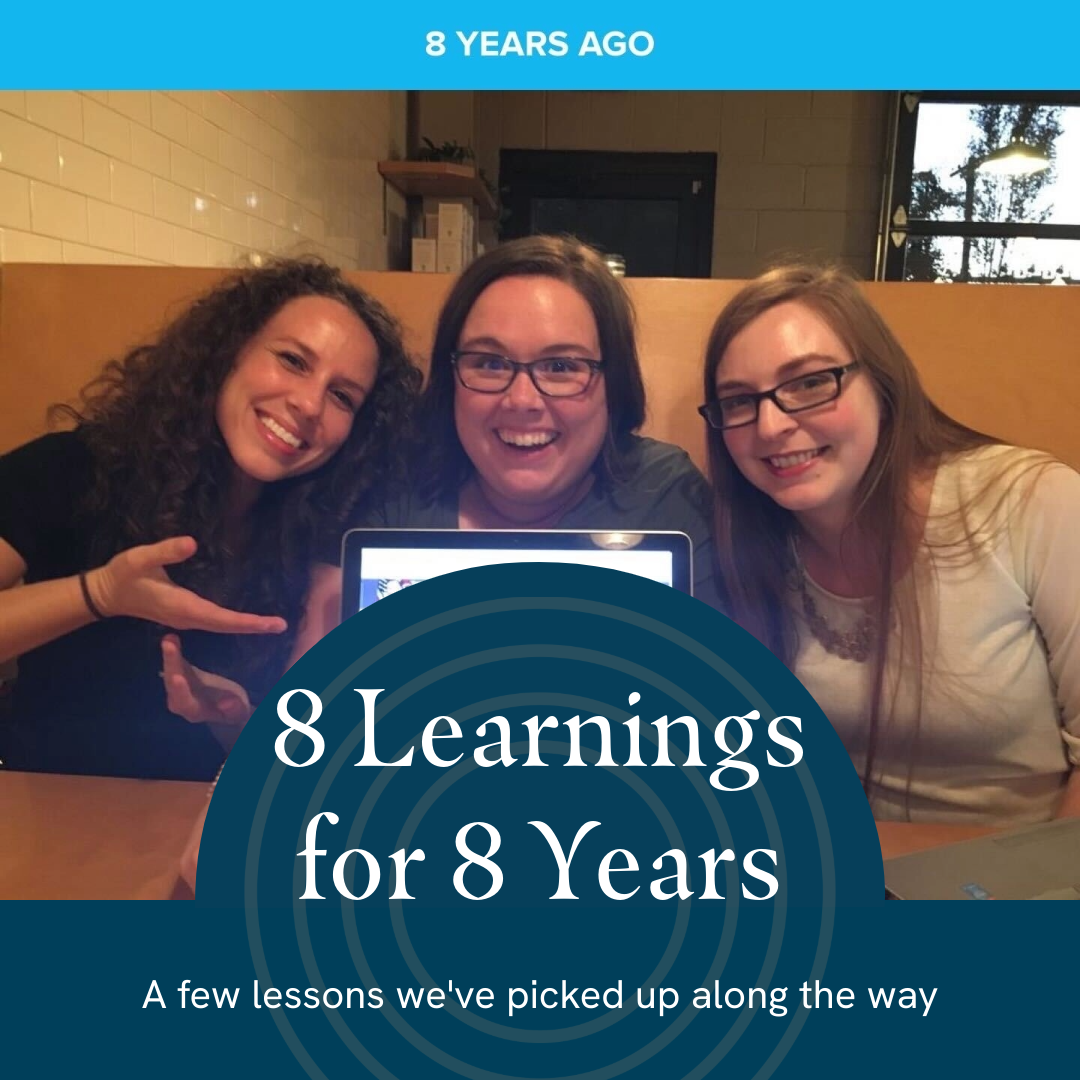
8 Learnings for 8 Years
This month marks eight years since we started Elevate. We were three young professionals with a shared vision who saw a need in the sector, so we jumped in—armed with ambition and plenty of coffee. Over the years, we’ve poured long hours into this work, celebrating wins, tackling tough challenges, and staying true to our core value: learning. In that spirit, we took some time to reflect on what’s brought us here. Here are a few lessons we’ve picked up along the way.

Rediscover Elevate: Get to Know Us and Explore Our New Services!
Let us reintroduce ourselves! Elevate Consulting is a full-service firm dedicated to supporting nonprofits, collaborative community groups, foundations, and municipalities in designing and implementing smart, efficient strategies and programs that improve their community. We are here to help you and your organization live out your mission and drive equitable social change in the world.
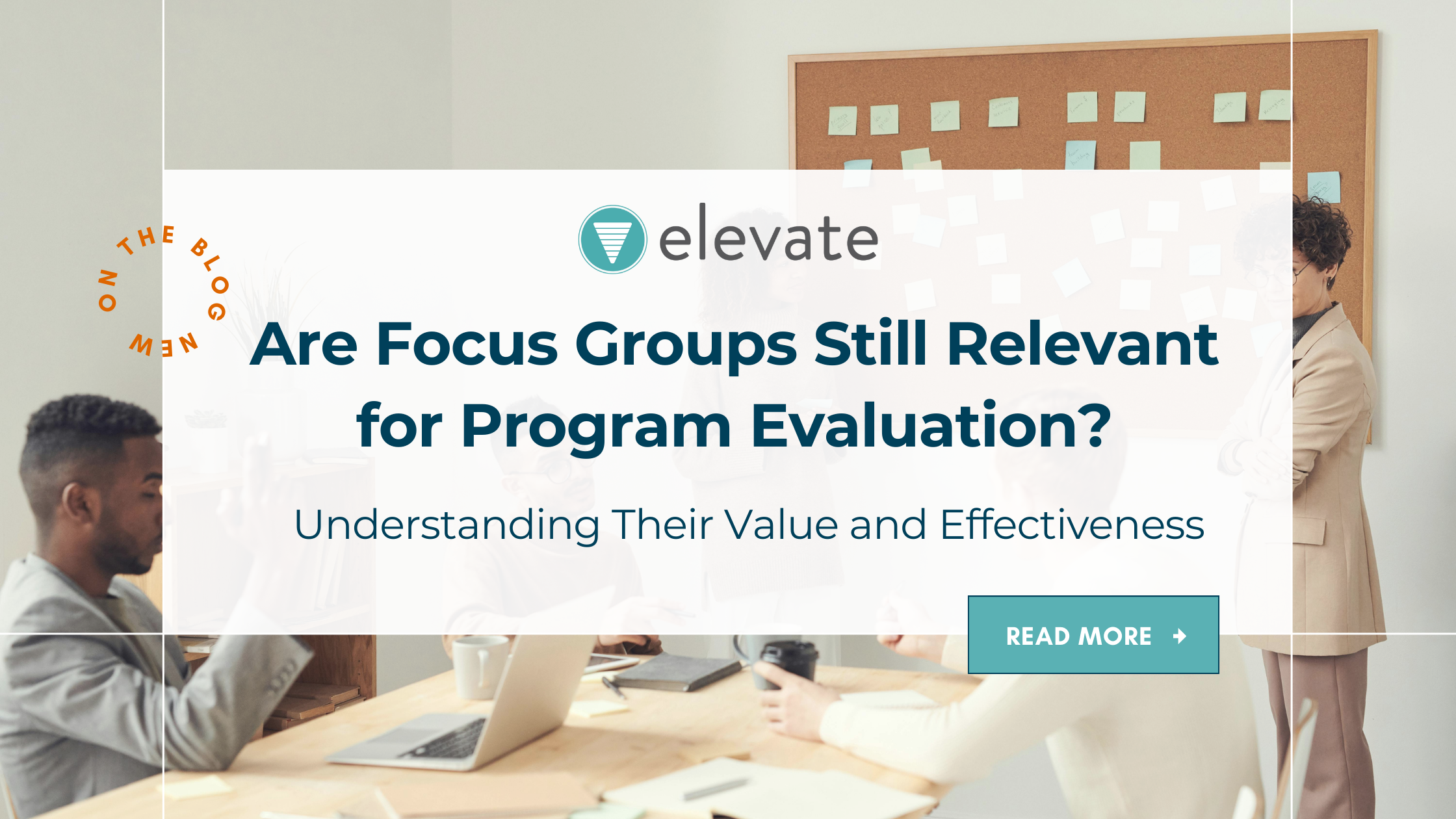
Are Focus Groups Still Relevant in Program Evaluation? Understanding Their Value and Effectiveness
In the ever-evolving landscape of program evaluation, focus groups have long been a staple for gathering qualitative insights. As we navigate a world filled with digital distractions and shifting preferences, the question arises: Are focus groups still an effective tool for program evaluation? Let’s explore what focus groups are, when they should be used in program evaluation, and their current effectiveness.
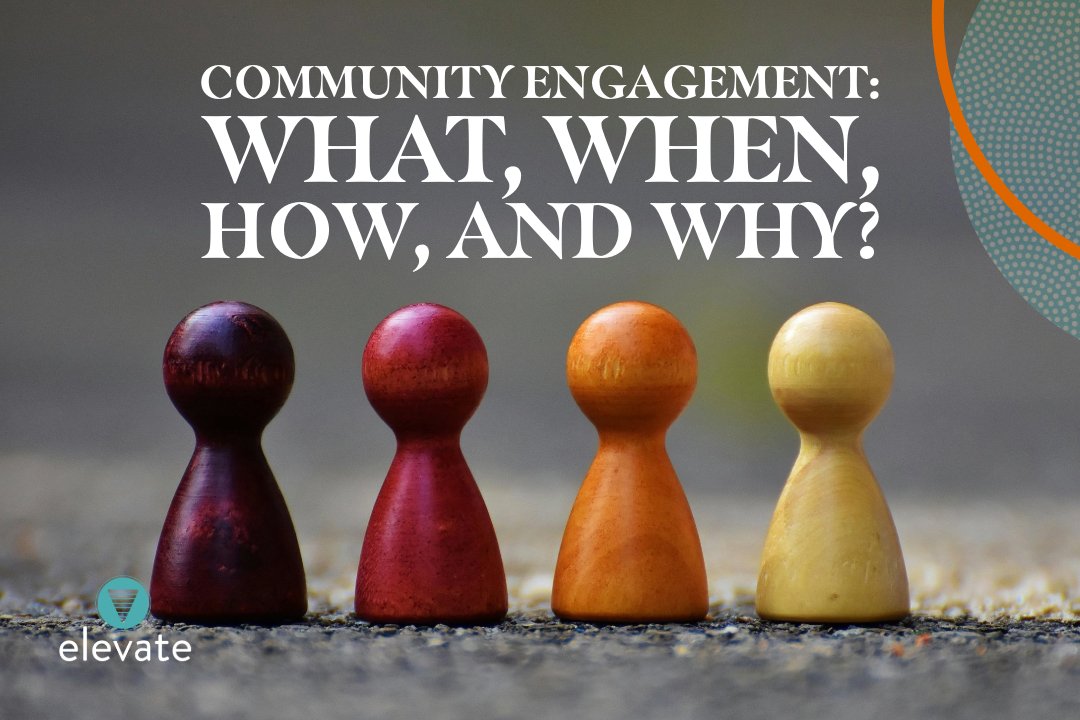
Community Engagement: What, When, How, and Why?
Community engagement, rooted in civic engagement principles and community organizing, has evolved significantly. Its importance has grown across the nonprofit, public, and private sectors, leading to varied experiences, definitions, and interpretations.

Our 2024 So Far!
The temperatures are threatening three digits, the operatic oratorio of the cicadas has waned, Nashville SC is on an unbeaten streak, and suddenly we find ourselves at the halfway point of 2024. We asked our staff to reflect on the first half of this calendar year; our team shared the following experiences, photos, and words that represent our year thus far.

Navigating the Long Game of Changing Systems Part 3: Embedding and Sustaining Change: Middle-Late Years
Collaborating across organizations to address root causes and change conditions at the system level is a messy, long experience. There are so many different approaches - Collective Impact, Systemness, grassroots organizing, and so on - each with their own principles, frameworks, tools, and ways of doing the work “correctly.”
